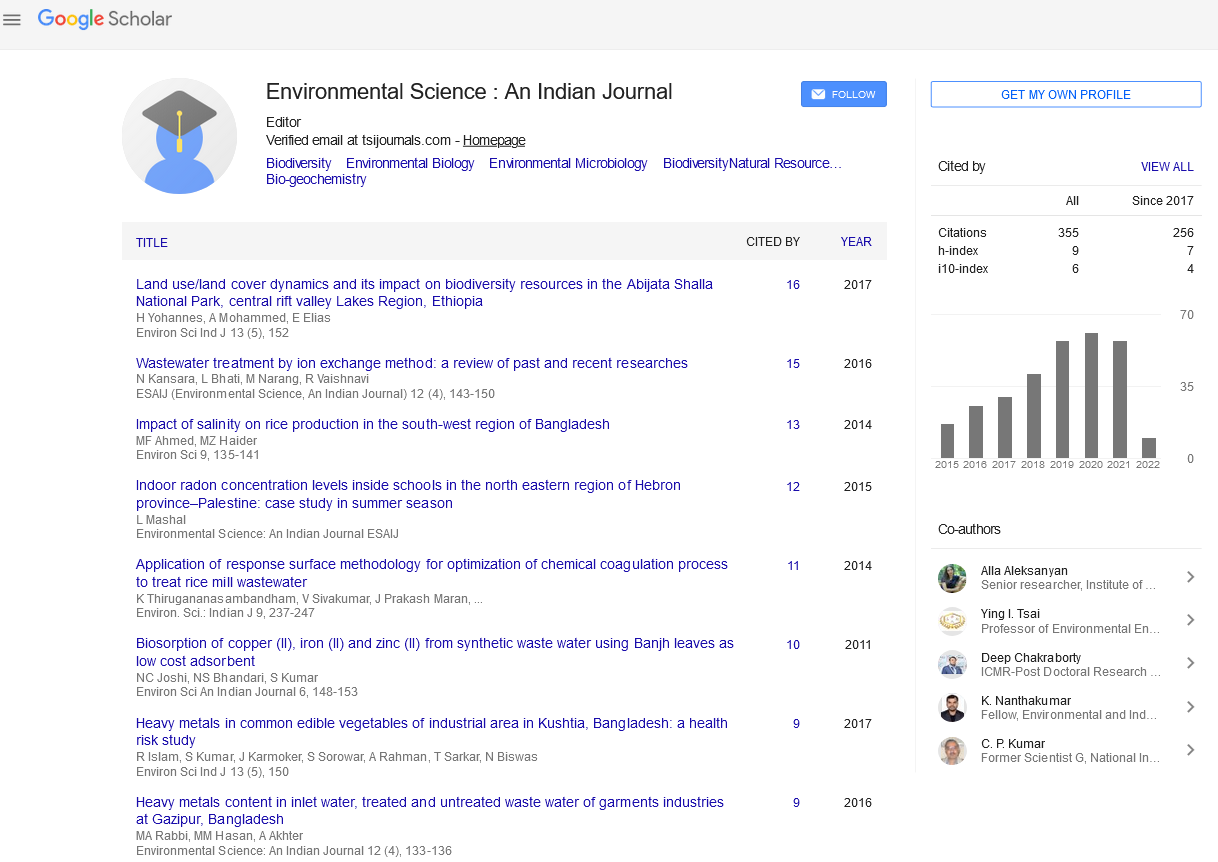Short communication
, Volume: 17( 9)Addressing socio-environmental concerns and reducing vulnerability: An environmental justice perspective
Susanne Borner
Goethe University Frankfurt, Germany
Abstract
Environmental justice as an analytical concept focuses on the interlinkage between the environment and social disparities. Although the concept has evolved over time, it has been essentially used for making normative claims about the conditions that people perceived as ‘unjust’. Different from the concept of ‘ecological justice’ which focuses on nature, it places individuals and communities at the centre of the debate. This research investigates environmental justice as a pluralistic theoretical framework for understanding and addressing socio-environmental concerns, reducing vulnerability, and for formulating demands for change towards a sustainable future. Building on the three-dimensional claim-making model developed by Walker (2012), this research argues in favour of an integrated environmental justice approach that combines a description of evidence with an understanding of the processes underlying the current status quo and normative justice claim. As a pluralistic concept, environmental justice integrates different dimensions such as distribution, participation, and recognition, and capabilities. In addition, this research seeks to provide a clearer understanding of what is environmentally unjust by integrating structural forms of discrimination with individual capabilities. It is argued that a situation can be considered environmentally unjust if people are disproportionately exposed to environmental burdens and they have less opportunity to participate in environmental decision-making to shape their environment, e.g., due to oppressive power structures and lack of recognition by others and/or due to a lack of individual capabilities. A review of the literature shows that taking into account individual capabilities is crucial in particular when seeking to address participatory inequalities. Therefore, I propose a Biographical Capability Approach to better understand the process whereby individuals acquire a sense of self-efficacy in dealing with environmental risks. This dual focus on structural conditions and individual capabilities contributes to a better understanding of pathways to reducing vulnerability to environmental hazards by strengthening people’s agency and their ability to shape their own future
Environmental justice as an analytical concept focuses on the interlinkage between the environment and social disparities. Although the concept has evolved over time, it has been essentially used for making normative claims about the conditions that people perceived as ‘unjust’. Different from the concept of ‘ecological justice’ which focuses on nature, it places individuals and communities at the centre of the debate. This research investigates environmental justice as a pluralistic theoretical framework for understanding and addressing socio-environmental concerns, reducing vulnerability, and for formulating demands for change towards a sustainable future. Building on the three-dimensional claim-making model developed by Walker (2012), this research argues in favour of an integrated environmental justice approach that combines a description of evidence with an understanding of the processes underlying the current status quo and normative justice claim. As a pluralistic concept, environmental justice integrates different dimensions such as distribution, participation, and recognition, and capabilities. In addition, this research seeks to provide a clearer understanding of what is environmentally unjust by integrating structural forms of discrimination with individual capabilities. It is argued that a situation can be considered environmentally unjust if people are disproportionately exposed to environmental burdens and they have less opportunity to participate in environmental decision-making to shape their environment, e.g., due to oppressive power structures and lack of recognition by others and/or due to a lack of individual capabilities. A review of the literature shows that taking into account individual capabilities is crucial in particular when seeking to address participatory inequalities. Therefore, I propose a Biographical Capability Approach to better understand the process whereby individuals acquire a sense of self-efficacy in dealing with environmental risks. This dual focus on structural conditions and individual capabilities contributes to a better understanding of pathways to reducing vulnerability to environmental hazards by strengthening people’s agency and their ability to shape their own future

